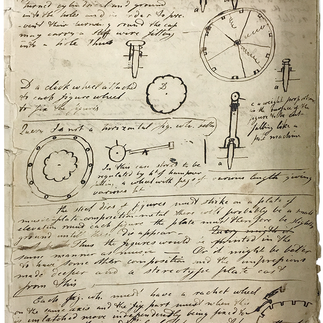Hello everyone! I'm Tina and this is Women Weekly, where I post about one wonderful woman in the STEM field every Friday. This week, I looked into the life of the self-described poetic scientist – Ada Lovelace.
Ada Lovelace was born in London in 1815 into a prominent family. She was raised by her grandmother, due to her father leaving her at a very young age, and her mother taking little interest in her. What her mother did care about was preventing immoral or 'mad' behavior in Ada (which she constantly perceived in her daughter's father), thus supporting Ada's fascination with Mathematics and Logic. At 20, Ada got married to William King and went on to have 3 children. Throughout her life, she was involved in numerous social scandals, ranging from affairs to horse-betting debt (yes, she did try to calculate the perfect bet – she did not succeed). At 36, she died of uterine cancer and was buried next to her father at her request.
When Ada was 12, the idea of flying took her by storm. Sprung into research about everything around the topic, little Ada wrote and illustrated a book called Flyology, but her findings weren't enough to achieve her dream. At 18, Ada met a fellow mathematician, Charles Babbage, who was at the time working on a fascinating invention – a machine capable of executing mathematical operations – the Analytical Engine. Babbage showed his invention to Ada and she quickly became interested. When she got to translate a transcript of Babbage's lecture on the Analytical Engine, she used the opportunity to add 7 notes of hers. One of the notes described a computer program designed to calculate the sequence of the Bernoulli numbers (which was never built but is considered to be correct), that got her the title of the author of the 1st computer program. Though she did work extensively on the program, many consider Babbage as the true holder of the title, since it was his ideas she built on.
What she can claim as her discovery without anybody's doubt is seeing the true potential of the Analytical Engine beyond pure calculation, its use in any field where numbers could be used to only represent the matter at hand. Considering her passion for implementing intuition and imagination when working with Math, her interest in metaphysics, her eagerness to question assumed truths and her curious approach to pseudosciences, one cannot be surprised she happened to be the one to come up with the idea of the modern computer.
Sources:
Information:
Images:







Comments